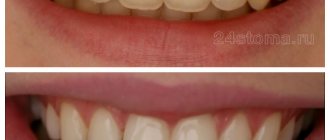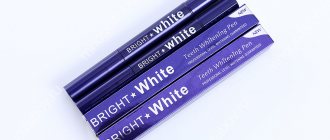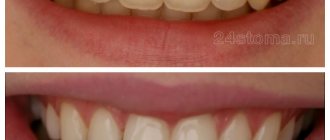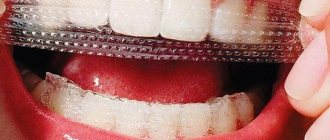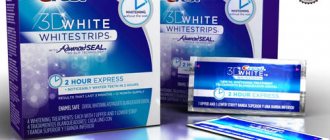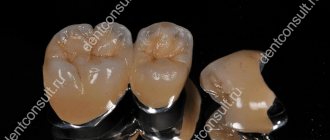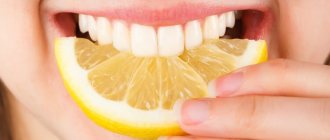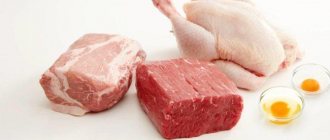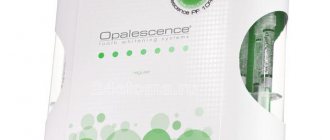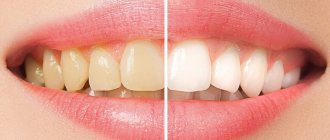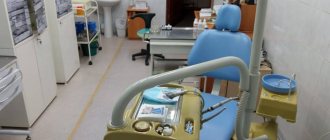Until recently, a number of aesthetic dentistry procedures were not available to people with hyperesthesia (increased tooth sensitivity).
In particular, in this condition, some enamel lightening techniques are contraindicated. But not Amazing White express whitening. This system has a gentle effect on dental tissue, as it is based on the use of a gel with a low concentration of hydrogen peroxide - only 16%.
Light whitening Amazing White from the USA
The Amazing White whitening system was developed and tested in the USA; it has only been used in our country for a couple of years. However, in such a short period of time, this method of teeth whitening has already gained significant popularity. This is due to its special gentle effect and high efficiency.
The action of Amazing White gel is based on the use of atomic oxygen, which is released from hydrogen peroxide under the influence of light from an LED lamp. Oxygen atoms actively penetrate the microscopic pores of tooth enamel and remove stains. In this case, no damage is caused. The process uses only one chemical reaction - the decomposition of hydrogen peroxide into atomic oxygen and water, and these components are absolutely harmless.
The hydrogen peroxide content depends on the type of whitening system. In the one intended for clinical use, its concentration starts at 16%. In the Amazing White home whitening system - significantly less.
After the procedure, the patient receives an immediate result: teeth become 6 to 10 shades whiter. Therefore, the system is also called Amazing White express whitening. According to the manufacturer, the whitening effect lasts up to 6 months, and with careful care and exclusion of foods with coloring pigments from the diet, this period increases.
Main indications
The appearance of teeth is affected not only by external reasons (smoking, caries, coffee), but also by internal ones (age-related changes, tooth wear, cracks, pigmentation). Modern technologies make it possible to quickly and painlessly eliminate age-related darkening of enamel, remove plaque that occurs due to the consumption of coloring foods and drinks, and lighten teeth darkened due to smoking.
Long-term whitening is especially important for people whose work involves constant contact with other people when they need to show off their smile. An attractive appearance not only gives you self-confidence, but also increases the loyalty of potential customers.
The effect of the procedure lasts for 2-3 years, depending on the individual characteristics of each patient.
Who is suitable for Amazing White express teeth whitening?
Even such an innovative whitening technology as Amazing White has some contraindications. Firstly, bleaching is not done on children, but it is usually not required at this age. Also, the procedure should not be performed on pregnant women and nursing mothers. Increased photosensitivity and taking medications that affect this indicator also make it impossible to lighten the enamel. In addition, of course, Amazing White express teeth whitening, like many other dental procedures, is not performed in case of significant dental caries.
There are other factors in which teeth whitening is contraindicated:
- allergy
- enamel defects
- gum and periodontal diseases
- lesions of hard tissues in the cervical area of the tooth
Only a dentist can determine whether a patient has contraindications to whitening. Sometimes it is advisable to carry out the procedure after complex treatment. You shouldn’t rush and turn a blind eye to existing dental problems, as in this case, whitening can cause complications.
Contraindications
Laser whitening has no disadvantages, but depending on the patient’s health condition, some limitations may be identified for its implementation:
- age under 16 years (the doctor looks at the formation of the bite and the hardness of the enamel);
- period of pregnancy and breastfeeding;
- increased tooth sensitivity or damaged enamel;
- carious processes;
- leaky restorations;
- diabetes mellitus and endocrine diseases.
There are quite a few disadvantages and contraindications, so many patients prefer laser teeth whitening in Moscow in a well-equipped clinic with a professional doctor.
How does the Amazing White whitening procedure work?
The Amazing White teeth whitening procedure in the clinic is absolutely painless, includes several stages and lasts no more than an hour, and the effect is visible instantly.
Main stages of whitening
1. First, the doctor treats the gums and lips with vitamin E, places a retractor and drains the enamel, then the gums are closed with a rubber dam - this is a latex plate that helps isolate the desired part of the oral cavity.
2. After this, the doctor begins whitening: applies the Amazing White whitening gel in a middle layer and distributes it evenly to cover all areas of the dentition, including the interdental area.
3. The gel is activated using an LED lamp. The gel remains on the teeth for 15 minutes, then it is removed and the enamel is dried.
4. After this, the procedure is repeated, then Amazing White Minerals remineralizing gel is applied to the teeth for about 7 - 10 minutes.
Whitening pastes
Whitening toothpastes are a very popular option for home smile brightening: it does not require the purchase of additional devices, and you can do it during your morning hygiene routine. There are three categories of whitening pastes - the first contains hydrogen peroxide, the second contains abrasives, and the third contains enzymes.
When using pastes with hydrogen peroxide, whitening occurs due to the action of peroxide: it breaks down into water and oxygen, which, by oxidizing pigments on the surface of the teeth, gives a whitening effect.
Activated carbon, soda particles, etc. can act as abrasive substances. Pastes with these substances are characterized by a high degree of abrasiveness, and with this composition they also produce powders for cleaning teeth that are suitable for smokers. Due to their abrasive properties, such pastes and powders more effectively clean plaque from the surface of the enamel, making it lighter.
The third category of pastes is created on the basis of enzymes, usually papain, which is isolated from the tropical fruit papaya. Papain, due to its acidic reaction, breaks down plaque to further clean the surface of the teeth from the deposition of food dyes caused by drinking coffee, tea and coloring foods (berries, beets, chocolate, etc.), as well as smoking.
There are also dental rinses with a whitening effect: they act on the teeth through surfactants that help break down plaque and better cleanse the oral cavity. They also contain hydrogen peroxide and are not very effective without the use of whitening paste.
Whitening Amazing White Extra
The manufacturer has developed several options for Amazing White whitening systems; they differ in the percentage of active substance and method of application. The most significant effect on teeth is provided by the Amazing White Extra whitening system - this whitening gel contains 37% hydrogen peroxide. This concentration allows you to achieve maximum whitening effect. However, it should only be used on the recommendation of a doctor, since the standard system copes with its task perfectly. The stronger formula can give your teeth an unnatural shade of white.
Fast whitening at home
If you need to quickly whiten your teeth at home, then you need to understand that the result can be achieved in at least 7-10 days.
To do this, you will need to use truly potent, high-concentration professional preparations, and therefore careful adherence to the recommendations of the manufacturer and the attending physician is strictly necessary.
Whitening your teeth in 1 week at home is possible, but you need to clearly understand how.
Since express whitening uses high doses of hydrogen peroxide or carbamide peroxide, there are only two alternatives to consider with this method:
- whitening strips;
- whitening trays.
A similar quick effect can be offered, for example, by Crest 3D White Luxe Whitestrips Supreme. The concentration of hydrogen peroxide is 14%, which is twice as high as usual. Wearing time is 30 minutes at a time, twice a day.
It is recommended to brush your teeth, but at least 1 hour before use, as the active ingredients of the paste act on the gums and can lead to additional irritation from the decomposition of peroxide.
Whitening trays involve the production of a personal set for each patient. This is due to the need to ensure tight contact of the mouthguard over the entire surface of the teeth and to avoid saliva and gel getting into the gums.
Universal solutions are not able to offer such a combination, and their use with concentrated gel is fraught with side effects. An example is the Opalescence Take Home PF system with a concentration of up to 20% carbamide peroxide.
If during treatment you experience significant side effects, such as increased sensitivity or pain, stop the course immediately and consult your doctor.
Indications and contraindications
The system is used to restore the natural color of tooth enamel. The main purpose is teeth whitening against the background of long-term consumption of tea, coffee, fruit juices and other drinks with intense coloring.
Contraindications are:
- children up to 11 years of age inclusive;
- use of braces;
- pregnancy period;
- individual intolerance to any component.
Teeth whitening for teenagers
Professional whitening is contraindicated for patients under 16 years of age, because During this period, active formation of enamel and its growth takes place. Whitening can damage the tooth structure, and in general you should not interfere with the normal development of the dental system.
But graduates aged 17-18 can already whiten their teeth. However, it is better to choose professional rather than home whitening, because... The enamel, although already mature, is still quite fragile, and a teenager can damage it and also injure the gums.
The doctor will select the optimal whitening method, especially since he has at his disposal preparations designed specifically for sensitive enamel. However, there are also contraindications for professional whitening.
These include carious cavities - if the whitening gel gets into them, it can cause irritation and pain - and juvenile periodontitis, which occurs in adolescents due to hormonal changes in the body. In this case, the gums are red, swollen, and bleeding. Then you need to put it in order and, most likely, instead of whitening, choose professional hygienic teeth cleaning with Air Flow.
4. Whitening is a painful procedure.
Once upon a time, teeth whitening was indeed far from the most pleasant procedure. Fortunately, those times are in the past and modern systems can minimize the patient’s discomfort during whitening. In particular, Zoom 4 has an improved light source (LED) and three luminous flux power modes. Thanks to the cold light lamp, the enamel does not heat up, which completely solved the problem of pain during and after the procedure. The condition of the patient's teeth is also important. If he has dental disease or cracked enamel, whitening may actually cause him pain - so you should visit a dentist before the procedure.
Dangers of Home Bleaching
If you have enamel defects, wedge-shaped defects, tooth hypersensitivity (from cold, hot, sour, sweet, etc.), then it is better not to whiten your teeth yourself. You risk causing them harm, which will then have to be corrected with the help of a doctor.
There are no completely harmless home methods for teeth whitening. Abrasive pastes, when used daily, cause increased abrasion of the enamel, so it is recommended to use them no more than 2-3 times a week for no more than 3 weeks in a row, just like whitening rinses.
The constant use of pastes and gels with peroxide disrupts the microbiocenosis of the oral cavity, i.e. destroys beneficial bacteria, can cause diseases of the oral mucosa - stomatitis, candidiasis, etc. Therefore, it is better to choose home whitening with the help of a dentist.
In addition, the patient very often overdoes it - sometimes because he does not notice the gradual daily lightening of the shade of the teeth. As a result, it is no longer the tooth pigments that are oxidized, but the structure of the tooth itself, which causes destruction of the enamel. The doctor checks on the color scale how much the shade has changed and whether it is possible to continue whitening, or is it better to stop and use remineralizing pastes or gels. Sometimes the doctor alternates whitening with enamel strengthening courses to give it the opportunity to recover and rest.
Whitening using photosystems and laser whitening
Air Flow returns the patient’s natural teeth color, but if the patient is not satisfied with it, for example, because it is too dark, then professional whitening can be resorted to - photo or laser. This is truly express whitening - the whole procedure will take no more than 40-60 minutes and will be completed in one visit to the doctor.
Both lasers and photosystems are similar in their action - special whitening gels are used, which, under the influence of laser light or photosystems, release active singlet oxygen. It, firstly, lightens surface stains, and, secondly, thanks to the light wave, it penetrates into the space of the enamel between the prisms of which it consists.
This is how oxygen reaches the deep layers of tooth dentin. It is there that the pigments that determine the natural color of the tooth are localized, which are laid down during the formation of the rudiments of the teeth in the fetus during gestation. Oxygen ions break down the globules of pigment molecules, they break up into small colorless molecules, and thus the tooth becomes depigmented. The most progressive in this regard is green laser whitening.
This is the key difference between professional whitening and home whitening, which has virtually no effect on the deep layers of dentin. Depending on the natural tone of the tooth and the chosen method of professional whitening, you can achieve a lightening of 10-12 tones.
How do whitening methods differ? Laser whitening is safer and more harmless, because when exposed to a laser beam, the light falls focused on the tooth, without scattering, and thus maximum efficiency is achieved. Unlike photo whitening, laser whitening strengthens the enamel structure because it reduces the interprismatic spaces, the prisms become denser, and this increases the microhardness of the enamel.
During photobleaching, beams of light waves, unlike a laser beam, are not focused, do not have one clear direction and the same wavelength, and therefore are more scattered. Accordingly, the efficiency is somewhat lower, but the procedure itself is cheaper than laser whitening.
Professional and home bleaching is not recommended for pregnant and breastfeeding women, as no studies have yet been conducted on the effects of such methods on the fetus.
There is no upper age limit for professional whitening. Moreover, with age, many people, even those who carefully monitor their oral health, notice that their teeth turn yellow. This happens because the enamel wears out (even due to the movement of the lips and tongue during conversation!), and its layer becomes thinner. In young people, the enamel is very dense and thick, with a microrelief, but gradually the enamel wears off and the transparent cutting edge disappears. When the enamel becomes thinner and more transparent, dentin with pigments shines through it more strongly, causing the tooth to appear yellower with age. Professional whitening fundamentally solves this problem.
